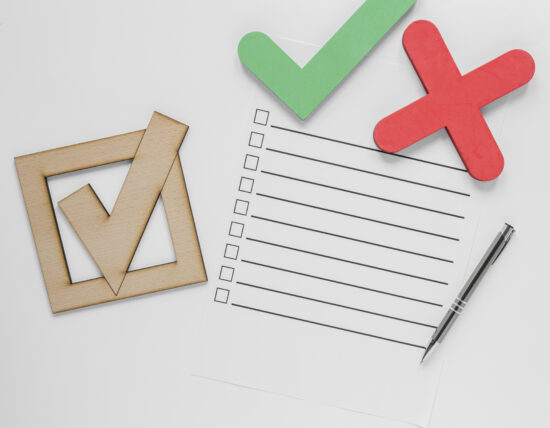CRM Data Quality: 8 Steps to Ensure High-Quality Data
barista editorial board
Let’s face it, we’ve all made mistakes when it comes to CRM data entry. Whether it’s accidentally deleting important customer information or misspelling someone’s name, we’ve all been there. But fear not! With a little bit of guidance and some best practices, you can avoid those cringe-worthy moments and make sure your CRM data is top-notch. In this post, we’ll cover 8 essential best practices for CRM data entry that will help you, dear RevOps, avoid those pesky errors and ensure your data is of the highest quality. So grab a cup of coffee and let’s dive in!
What is CRM data quality?
Customer Relationship Management (CRM) data quality refers to the standard of data collected, entered, and maintained by businesses to manage customer interactions effectively. It is the foundation of a successful customer relationship management strategy that enables organizations to gain insights into their customers, personalize interactions, and enhance customer experiences. In essence, data quality is critical to the success of any CRM initiative as it ensures the accuracy, completeness, relevance, and reliability of customer data. High-quality data is essential for businesses to make informed decisions, streamline their operations, and improve their bottom line.
Data quality is having key attributes, like accuracy, availability, accessibility, completeness, relevance, reliability, and timeliness. High-quality CRM data must meet these criteria to be considered effective. In other words, the data must be accurate and free from errors, easily accessible, complete and comprehensive, relevant to the business, reliable and consistent, and up-to-date. When organizations prioritize data quality, they can ensure that their CRM system is a valuable asset to their business.
Why is CRM data quality important?
In today’s business landscape, companies need to have access to accurate, up-to-date, and complete customer data to stay competitive. The quality of CRM data is crucial for building and maintaining strong customer relationships, improving customer experiences, and driving revenue growth. With high-quality CRM data, businesses can segment their customers effectively, create targeted marketing campaigns, optimize ad spend, and reduce compliance risks.
Research by McKinsey has shown that organizations that leverage customer data outperform their peers by 85% in sales growth and more than 25% in gross margin. McKinsey’s 2020 research also revealed that sales teams that actively leverage CRM data using automations can see up to 10% sales uplift. These statistics illustrate the importance of clean, organized, and accurate data to the success of personalized campaigns, sales outreach, and email marketing automations. By prioritizing data quality and continuously assessing the usefulness of their data, businesses can reap the rewards of their CRM initiatives.
Best Practices for Ensuring CRM Data Quality
1. Establish CRM Data Standards:
To ensure consistency and accuracy in CRM data, companies should establish orchestrating data standards that outline guidelines for CRM data entry, formatting, and labeling. This ensures that everyone who enters data into the system is following the same rules, reducing the chances of errors and inconsistencies. Data standards should cover basic information such as name, address, and contact information, as well as more specific fields such as industry and job title.
2. Train Employees on CRM Data Entry Best Practices:
Employees who enter data into a CRM system should be trained on best practices to ensure accuracy and completeness of data. Training should cover data standards, proper formatting, and ways to avoid common mistakes such as duplicate entries or misspelled names (check out some CRM duplicates tools that can help with that). Companies can use quizzes or role-playing exercises to reinforce the training and ensure that employees are following best practices.
3. Regularly Clean and Update CRM Data:
Data in a CRM system can quickly become outdated or inaccurate. To maintain CRM data quality, companies should regularly clean and update data. This involves reviewing data for accuracy, removing Salesforce duplicate entries, and updating information such as contact information or job titles. Regular data cleaning ensures that the CRM system remains an accurate and reliable source of customer information.
4. Use Automated Tools to Validate CRM Data:
Automated tools such as data validation software can help ensure CRM data quality by automatically checking data for accuracy and completeness. These tools can flag incomplete or incorrect data, preventing it from being entered into the system. This reduces the chances of errors and inconsistencies in the CRM system.
5. Monitor CRM Data Entry:
Monitoring CRM data entry is an important part of ensuring CRM data quality. Companies can use tools such as data entry logs or audits to monitor data entry activity and ensure that employees are following data standards and best practices so CRM data leakage won’t occur. Monitoring data entry also helps identify and address any issues or errors in real-time.
6. Encourage Data Collaboration:
Encouraging collaboration between departments can help ensure CRM data quality for better revenue data orchestration. When different departments work together and share data, they can identify and correct errors or inconsistencies more easily. Collaboration can also help ensure that all customer interactions and touchpoints are captured in the CRM system, providing a more complete picture of customer behavior.
7. Implement CRM Data Governance:
CRM Data governance refers to the processes and policies that govern the management of data within an organization. Implementing CRM data governance can help ensure CRM data quality by establishing clear rules and guidelines for data management. Data governance can also help ensure compliance with regulatory requirements and best practices.
8. Use Data Analytics:
Analyzing CRM data can provide valuable insights into customer behavior and preferences. Companies can use data analytics to identify trends, segment customers, and personalize marketing and sales efforts. By using CRM data to inform decision-making, companies can improve the effectiveness of their marketing and sales efforts and enhance customer satisfaction.
CRM data Quality is King, CRM data entry is the crown
Ensuring CRM data quality is essential for companies that rely on customer data to inform marketing and sales efforts, decision-making, and customer interactions. By following best practices such as establishing data standards, training employees on data entry best practices, regularly cleaning and updating data, and using automated tools to validate data, companies can maintain the accuracy, completeness, and consistency of their CRM data.
Automate CRM data entry with barista AI
When you manually manage CRM data entry, the risk of human error and bad CRM data goes up substantially, leading to duplicate records, poor data, validating errors, and data integrity problems.
Barista AI free up reps from CRM data entry tasks by automatically populating the right CRM fields from your inbox and calendar information.
Every email message, calendar meeting, and contact is automatically imported into barista AI, and CRM data is updated instantly. Tracking sales activities for the sake of clean CRM.


